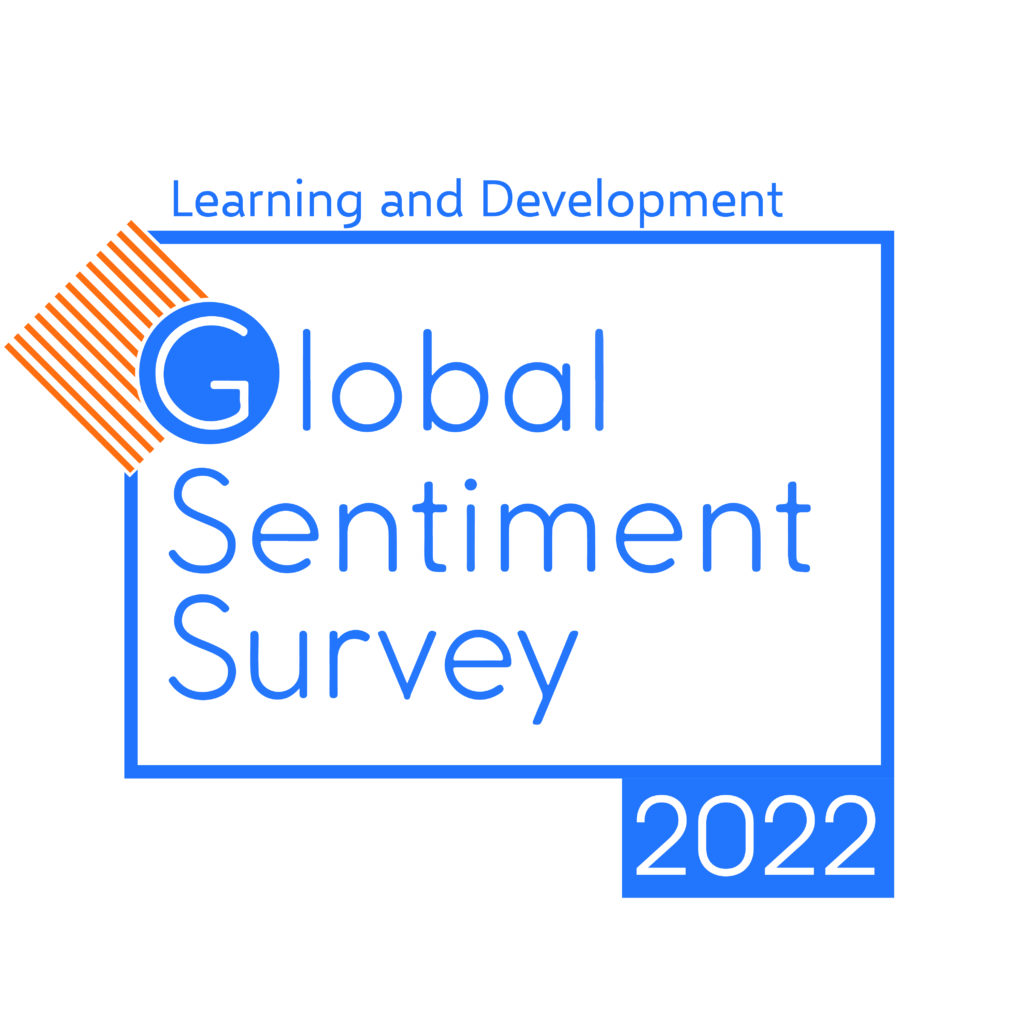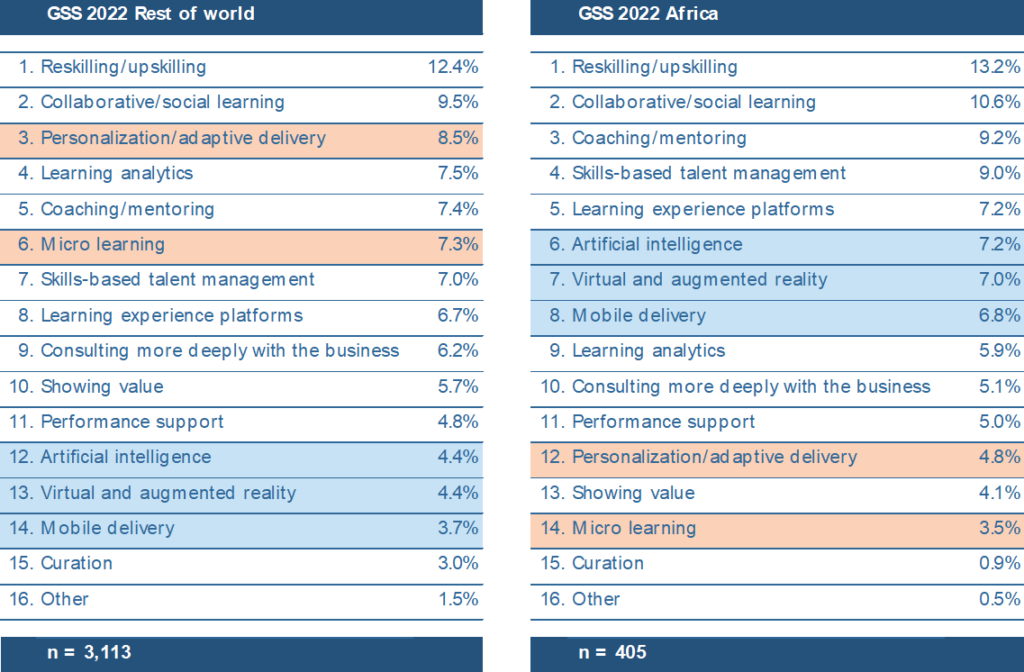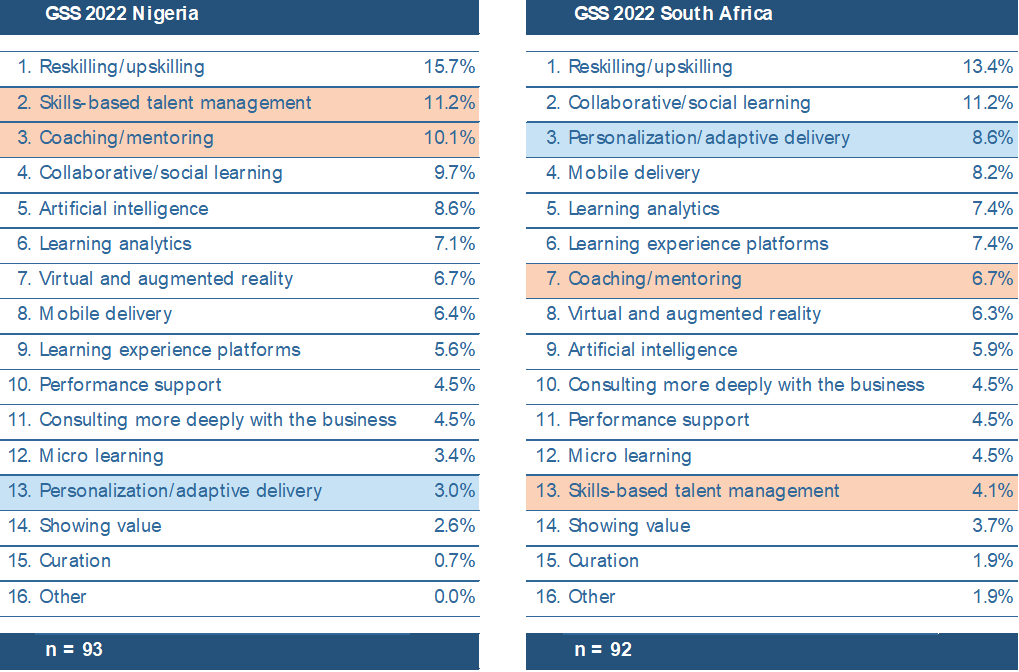
This year, for the first time, a significant group of voters from Africa joined the annual L&D Global Sentiment Survey, which looks at the views of L&D professionals world-wide. The survey, now in its ninth year, has one obligatory question: ‘What will be hot in workplace L&D in 2022?’, with respondents choosing three options from a list of 15. These options range across methodologies and technologies, and are chosen to reflect current concerns in L&D. In addition, respondents may also answer voluntary questions about where they work, and their key challenges for the year.
Over 3,500 people voted from 112 countries. Most of the votes came from 7 regions: Africa, Australia and New Zealand, Europe, India, North America, South America and the UK. 405 respondents from 23 African nations voted, with most of the votes came from four countries: Nigeria (23%), South Africa (23%), Kenya (12%) and Ghana (10%).
How did the African vote compare with voting in the rest of the world?

The greatest differences between the two tables have been highlighted. The starkest is around Personalization (#3 overall, but #12 on the African table of results on the right). Excluding Africa, the global vote for this option was 8.5%, but the continent gave it just 4.8% of its vote, the lowest of any region.
When it came to the highly-technical matters of AI, VR/AR and Mobile delivery (#6, #7 and #8), the vote from Africa was the highest of any of the 7 regions. These are highlighted in blue on the tables. Does this mean that Africa is more enthusiastic about technology in its support of learning? Not entirely. After all, it rated Micro learning (#14) far lower than the rest of the world – once again, this was the lowest vote of any of the 7 regions in the survey.
All regions differ in their responses to the survey. Historically, North America and India have always voted Personalization/adaptive delivery higher than Collaborative/social learning, while South America has always done the opposite. Within regions marked differences exist, too. Central Europe puts Coaching/mentoring higher than Western Europe, which in turn rates Consulting more deeply with the business more highly.
And of course, Africa itself is no monolith, the voting within the continent varied widely from country to country. This can be seen in two countries which contributed the greatest number of votes, Nigeria and South Africa:
What drives the differences between countries, regions and continents? Is there more use of mobile delivery in South Africa, while Lagos is a hub of VR development? Why is Coaching/mentoring rated so differently – and why does Kenya rate it in the middle of the table, like South Africa, while Ghana ranks it even higher than Nigeria? These are fascinating questions – I won’t speculate here about the possible reasons, but I would love to hear your opinion when I deliver my webinar on the survey results on 30th March for eLearning Africa. Please register now for the webinar. Nobody knows more about what’s really happening than the people behind it, so please join us online for the webinar and share your thoughts about what makes Africa, and the countries within, unique in L&D.
More information: https://donaldhtaylor.co.uk/insight/gss2022-results-01-general/



















